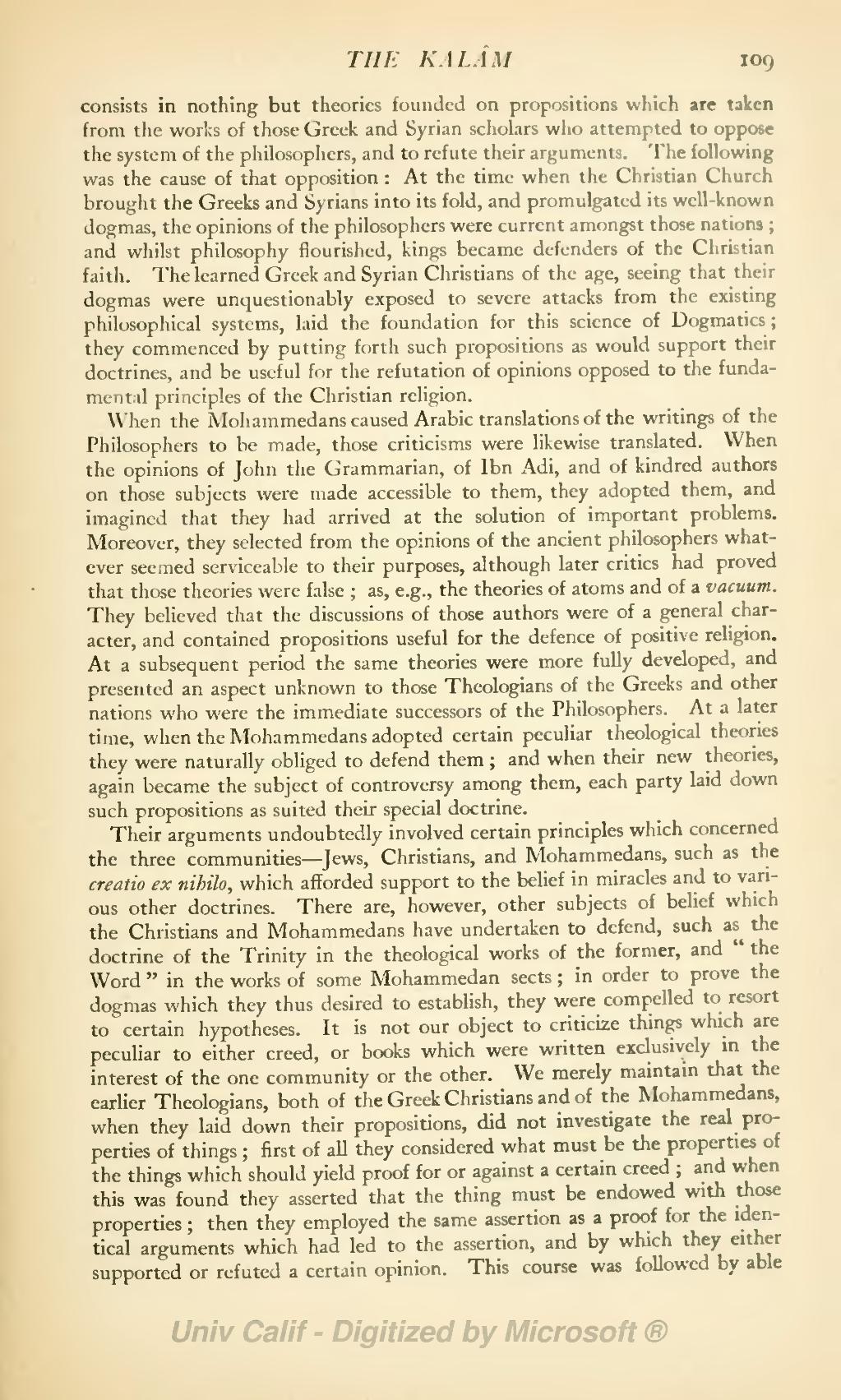in nothing but theories founded on propositions which are taken from the works of those Greek and Syrian scholars who attempted to oppose the system of the philosophers, and to refute their arguments. The following was the cause of that opposition: At the time when the Christian Church brought the Greeks and Syrians into its fold, and promulgated its well-known dogmas, the opinions of the philosophers were current amongst those nations: and whilst philosophy flourished, kings became defenders of the Christian faith. The learned Greek and Syrian Christians of the age, seeing that their dogmas were unquestionably exposed to severe attacks from the existing philosophical systems, laid the foundation for this science of Dogmatics; they commenced by putting forth, such propositions as would support their doctrines, and be useful for the refutation of opinions opposed to the fundamental principles of the Christian religion.
When the Mohammedans caused Arabic translations of the writings of the Philosophers to be made, those criticisms were likewise translated. When the opinions of John the Grammarian, of Ibn Adi, and of kindred authors on those subjects were made accessible to them, they adopted them, and imagined that they had arrived at the solution of important problems. Moreover, they selected from the opinions of the ancient philosophers whatever seemed serviceable to their purposes, although later critics had proved that those theories were false; as, e.g., the theories of atoms and of a vacuum. They believed that the discussions of those authors were of a general character, and contained propositions useful for the defence of positive religion. At a subsequent period the same theories were more fully developed, and presented an aspect unknown to those Theologians of the Greeks and other nations who were the immediate successors of the Philosophers. At a later time, when the Mohammedans adopted certain peculiar theological theories they were naturally obliged to defend them; and when their new theories, again became the subject of controversy among them, each party laid down such propositions as suited their special doctrine.
Their arguments undoubtedly involved certain principles which concerned the three communities--Jews, Christians, and Mohammedans, such as the creatio ex nihilo, which afforded support to the belief in miracles and to various other doctrines. There are, however, other subjects of belief which the Christians and Mohammedans have undertaken to defend, such as the doctrine of the Trinity in the theological works of the former, and "the Word" in the works of some Mohammedan sects; in order to prove the dogmas which they thus desired to establish, they were compelled to resort to certain hypotheses. It is not our object to criticize things which are peculiar to either creed, or books which were written exclusively in the interest of the one community or the other. We merely maintain that the earlier Theologians, both of the Greek Christians and of the Mohammedans, when they laid down their propositions, did not investigate the real properties of things: first of all they considered what must be the properties of the things which should yield proof for or against a certain creed; and when this was found they asserted that the thing must be endowed with those properties; then they employed the same assertion as a proof for the identical arguments which had led to the assertion, and by which they either supported or refuted a certain opinion. This course was followed by able men
